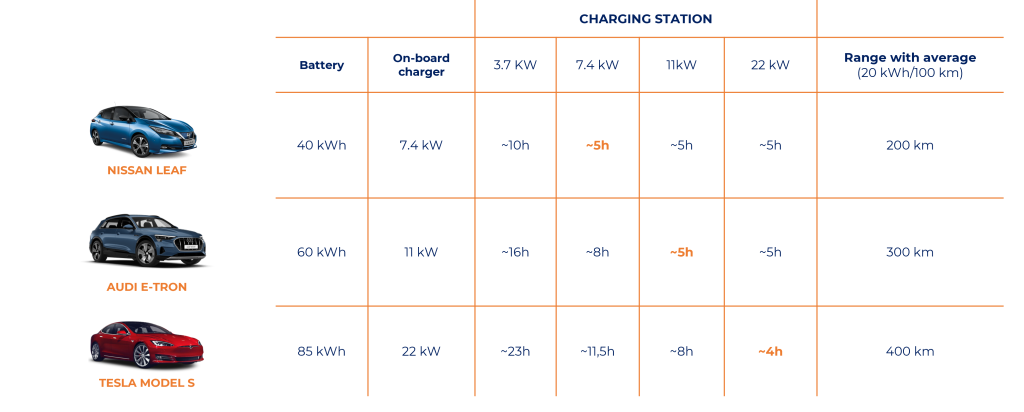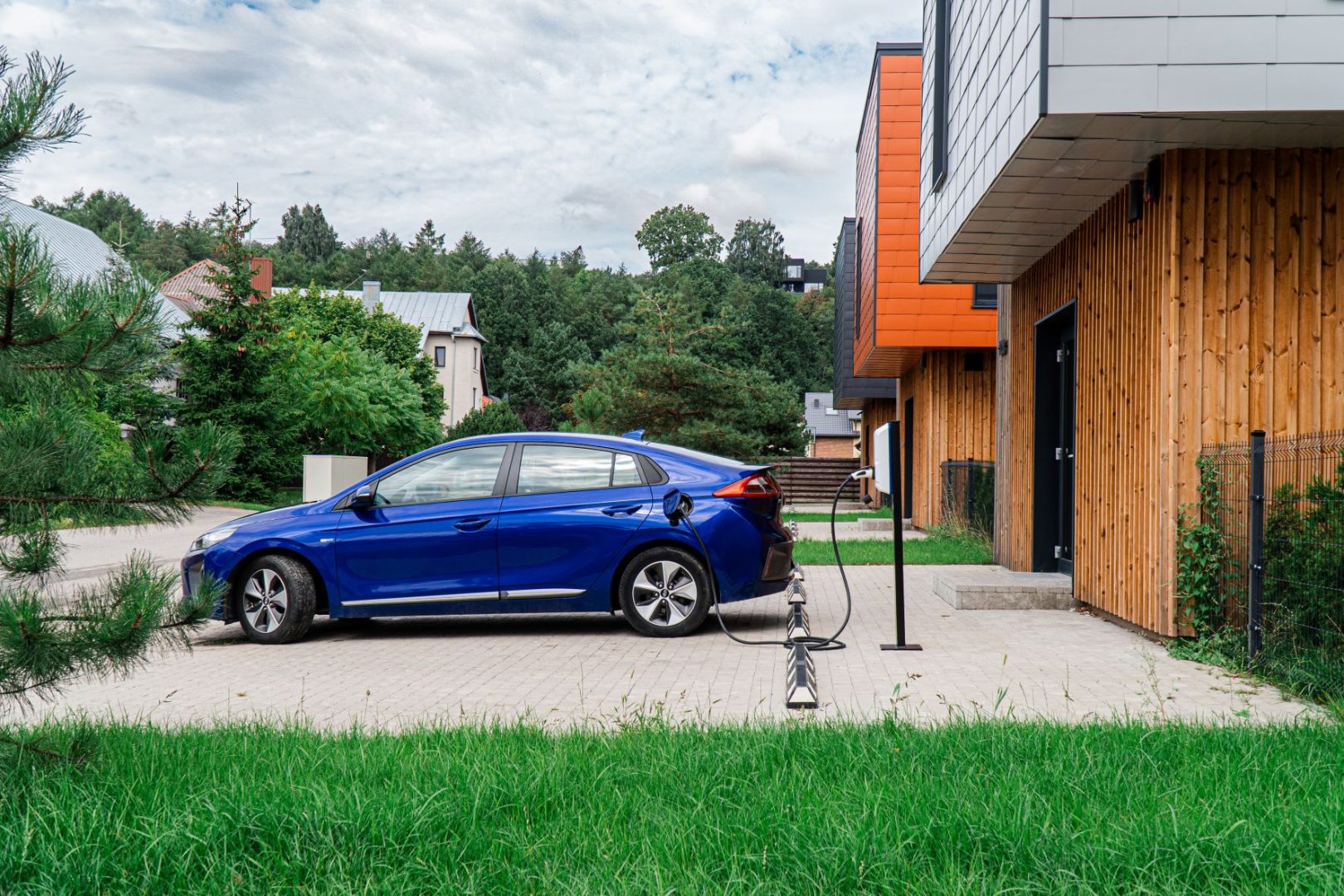Top 5 questions to ask before buying an EV charging station
You may still sometimes hear that charging station is not really needed to charge your EV at home since you can use the simple plug. Well, even though it is technically possible, it is really not recommended and not efficient. Firstly, it is not safe, secondly EV charging station speeds up the charging up to 9 times and also offers various smart features. But before you buy a charging station these are the important questions to answer.
1. How fast will my EV charge to 100%?
To estimate the charging time you need to know:
- Size of the battery
- Power of the onboard charger
- Power of the charging station
Charging time = battery capacity (kWh) / charging power (kW)
First of all it is important to know the power of the onboard charger of the EV because it determines how much power EV will be able to take. So, for example a car with 11kW onboard charger connected to 11kW charging station will take around 5 hours to charge. Interesting that if we have 22kW charging station charging time will remain 5 hours in this case as charging speed is limited to 11kW (power of the onboard charger).

Important to mention that charging to 80% is often enough (unless you are prepared for a longer trip) as after EV is charged up to 80% charging will be much slower for the remaining 20%.
2. Which power charging station should I choose?
We could twist the question and ask how fast do you want it to charge?
For example if you own 40kW Nissan Leaf with 7,4kW onboard charger, there is no need to buy 22kW station as charging time will not decrease starting from charging at 7,4 kW power. However, owning Tesla Model S and having 22kW station can decrease the time needed to charge to 4 hours (compared to 8 hours charging with 11kW or 11,5 hours with 7,4kW charging station).
Rule of thumb would be choosing 3-phase 11kW station for home as it is the most universal, however should look individually what makes the most sense.
3. What should I do if I have limited power supply? Do I need to increase it?
Not necessarily. While different devices in the building consume energy, adding EV charging infrastructure poses the question of whether we need to increase the power supply? In many cases it is not necessary because smart charging
feature called Dynamic Load Management (DLM) is meant to analyze a household’s electricity consumption and allocate the power surplus to the EV charging infrastructure.
During the day, when multiple devices are connected – charging will be slower, but as days are made for driving and nights for charging, at night your EV will have access to more power. This way you will be able to charge your EV day and night without increasing the power supply.
4. Which EV charging station should I choose?
There is a wide range of range of EV charging stations on the market, however these are important things to think about before making a decision:
- Socket vs cable. If you are planning to charge your EV then it is very very convenient to buy a charging station already with integrated cable, will save you time and effort.
- Smart features of the charging station. Does charging station come with communication and supports the smart features such as integrating with solar panels, power balancing, dynamic load management (smart charging), remote tech support and others.
- Local technical support. Check whether there is a local representative of the respective brand, it will make it easier and faster to solve the problem if it even occurs.
5. What preparation work should I do before installing a charging station?
- Choose location (mounted on the wall, self standing fixed on a pole)
- Pre-wire parking spot
- Check whether you need to increase power supply
- Install LAN internet cable
